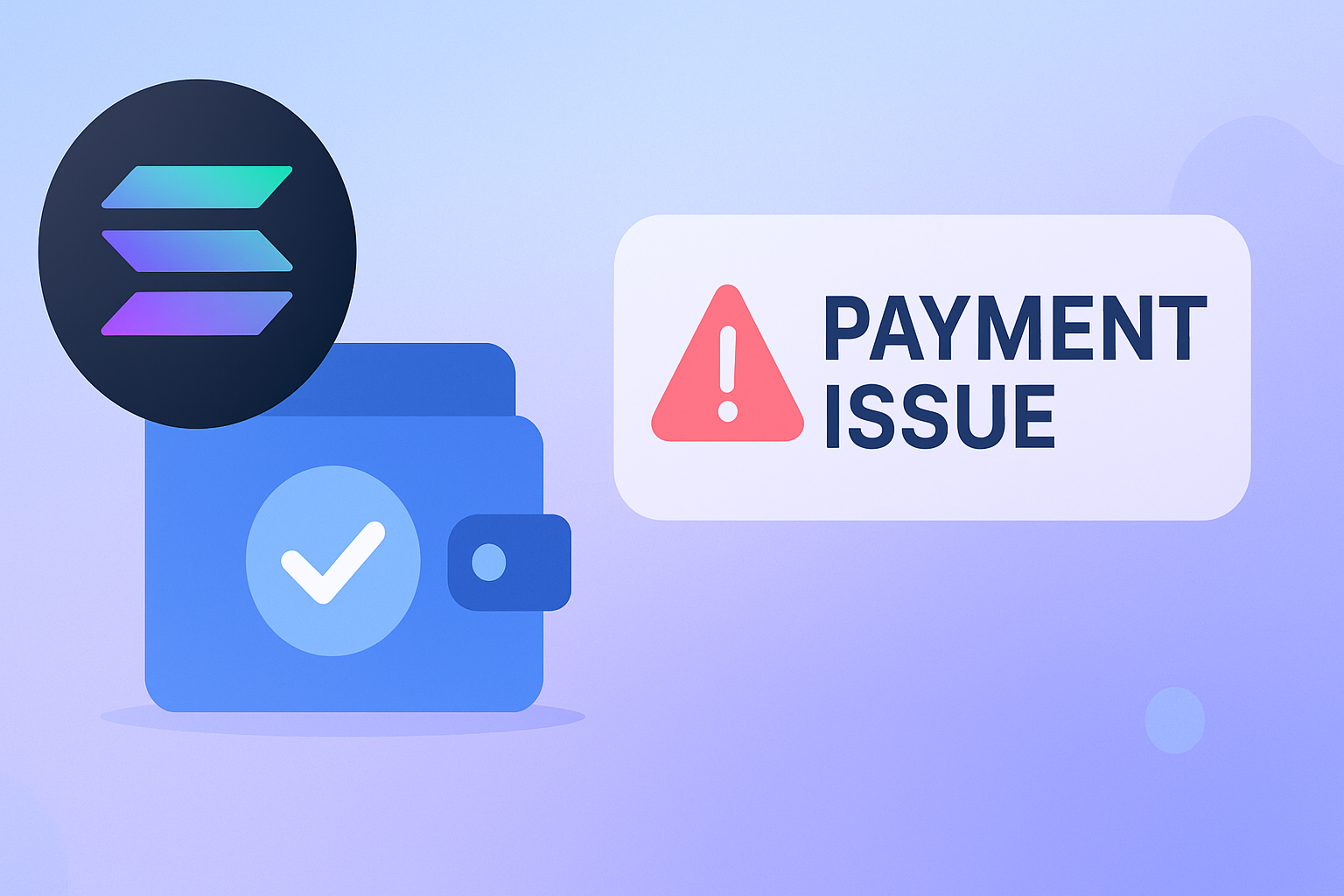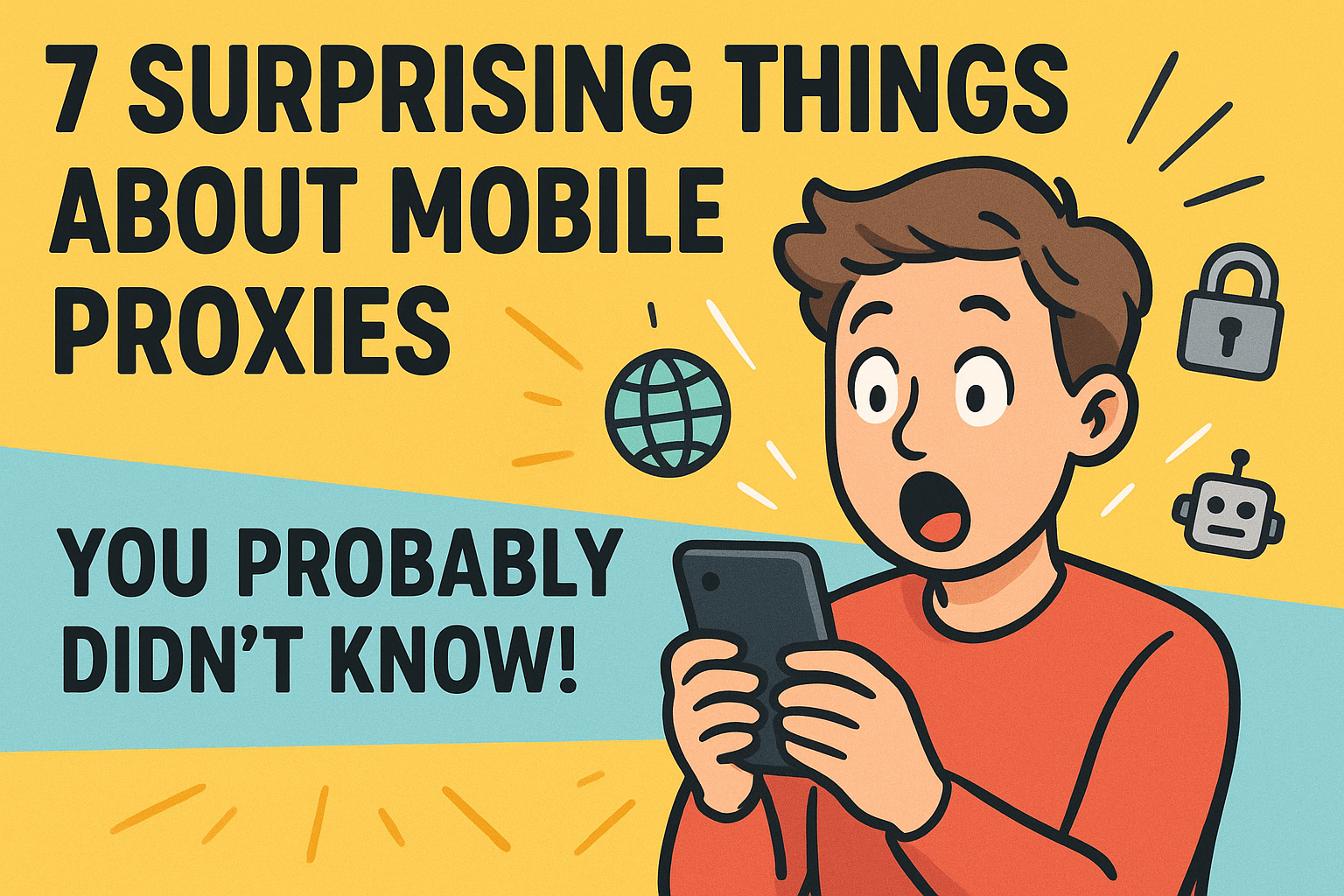Discover seven surprising facts about mobile proxies, from why fraud scores are misleading to how IPs naturally change on mobile networks. Learn how to get the most out of mobile proxies for scraping, automation, and privacy.
Blog
Welcome to our blog. Here you can find the latest company news and articles regarding everything GridPanel + Proxies.

Read More
Forgetting to include a MEMO when sending SOL via CoinGate is a fixable mistake, but it requires manual support. By keeping your transaction details ready and contacting CoinGate promptly, you can get your payment resolved without losing your funds. Always double-check every field before sending crypto payments to avoid unnecessary delays.

Read More
New mobile proxy users often fall for myths about IP bans, unlimited script compatibility, and IP changes causing bans. In reality, mobile networks work differently, and website fingerprinting involves far more than just your IP. Learn the truth and how to avoid rookie mistakes when using mobile proxies.

Read More
Discover how to automate websites in Python without launching a browser. nodriver is a fast, lightweight tool that uses HTTP requests and HTML parsing to handle tasks like form submissions, navigation, and scraping—perfect for sites that do not rely on JavaScript. Let me know if you're targeting a specific audience like developers, testers, or data engineers, and I can tailor it further.

Read More
Scaling a chat agency comes with challenges like IP restrictions, account bans, and slow performance. GridPanel mobile proxies solve these issues by providing real mobile IPs, secure and undetectable access, global reach, and fast, stable connections. They help agencies manage multiple accounts effortlessly while avoiding security triggers. With GridPanel, you can scale without limits and ensure smooth operations. Get started today!

Read More
Not all proxies are created equal! Free proxies might seem like a good deal, but are they worth the risk? In this guide, we break down the pros and cons of free and paid proxies—helping you decide which option is best for your needs. Plus, see why GridPanel’s premium proxies give you the best of both worlds.

Read More
Proxies are valuable tools for improving privacy, accessing restricted content, and enhancing online security. However, not all proxies are equally secure, with some free or poorly configured services exposing users to data breaches and vulnerabilities. By understanding the different types of proxies and their risks, users can make informed decisions to ensure safe and reliable proxy usage.

Read More
Virtual Private Servers (VPS) and Proxy Servers serve different purposes in online privacy and performance. A VPS provides full control over a virtual server for hosting and running applications, while a proxy mainly reroutes traffic for anonymity and bypassing restrictions. Services like GridPanel enhance proxies with high-speed connections and privacy features, making them ideal for businesses requiring scalable and secure data handling.

Read More
Browser fingerprinting is a powerful online tracking technique that gathers unique data about your device and browser setup to create an identifier. This blog explores how fingerprinting works, its applications in advertising, fraud prevention, and personalization, and why it raises privacy concerns. Learn how tools like anti-detect browsers and mobile proxies can help protect your digital identity.

Read More
An IP address is a unique identifier for your internet connection, but it can reveal your general location, make you vulnerable to DDoS attacks, and expose you to tailored phishing or tracking. Protecting your IP address is essential and can be achieved by using tools like mobile proxies and VPNs, which mask your real IP and enhance privacy. Combining these tools with strong cybersecurity practices helps you stay safe and avoid misuse.

Read More
An anti-detect browser hides your digital fingerprint by changing details like IP address and browser type, allowing for private, multi-account management. When combined with GridPanel’s rotating mobile proxies, which offer real mobile IPs, you gain enhanced anonymity, reduced risk of bans, and access to region-specific content. This setup ensures secure, flexible online activity.

Read More
GridPanel is budget-friendly, user-friendly, and transparent, offering essential services like 4G/5G proxies and a scraper tool. It's ideal for businesses needing effective proxy solutions without extra costs. BrightData offers high-quality services but is expensive and complex, better suited for larger businesses with bigger budgets. For straightforward, affordable mobile proxy services, GridPanel is the smarter choice.

Read More
In the competitive world of online data collection, choosing the right proxy service can be daunting. GridPanel and Oxylabs are two popular options, but GridPanel’s mobile proxies offer distinct advantages. With superior anonymity, optimized performance for mobile tasks, seamless access to geo-targeted content, and competitive pricing, GridPanel stands out as a top choice for users focused on mobile applications. While Oxylabs has its strengths, GridPanel’s features and budget-friendly plans make it an appealing partner for anyone seeking reliable mobile proxies for their online endeavors.

Read More
GridPanel and IPRoyal both offer solid proxy services, but when it comes to mobile proxies, GridPanel stands out. With a focused approach, real 4G/5G IPs, and consistent high-speed performance, GridPanel delivers reliable, authentic connections ideal for social media management, ad verification, and data scraping. If mobile proxies are your priority, GridPanel is the top choice.

Read More
Web scraping is evolving with a focus on ethical practices, AI integration, and headless browsers for efficiency in 2024. While APIs are preferred for data retrieval, scraping remains vital where APIs aren't available. Enhanced anti-scraping measures will pose challenges, making it essential for scrapers to stay updated on these trends.

Read More
Mobile proxies are crucial for effective SEO monitoring. They enable accurate SERP tracking on mobile devices, facilitate testing of mobile-friendly features, and assist in competitive analysis while avoiding IP bans. Additionally, they support localized SEO by simulating searches from specific locations. Incorporating mobile proxies into your SEO strategy can provide a significant competitive edge.




